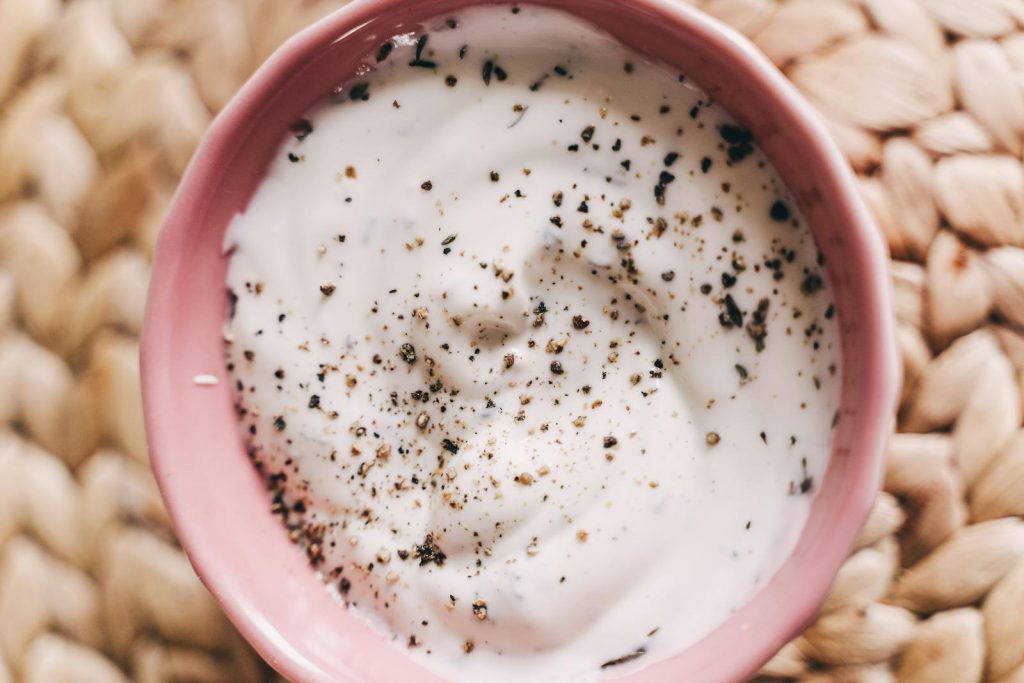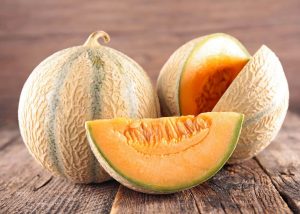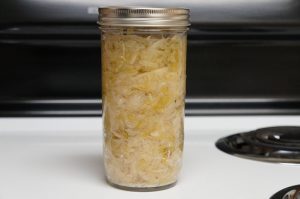14 Best Foods for Digestive Health and Gut Flora

Maintaining digestive health and a balanced gut flora is essential for overall well-being. The digestive system is responsible for breaking down food, absorbing nutrients, and eliminating waste, while the gut microbiome—the collection of bacteria, viruses, and fungi living in the intestines—plays a critical role in regulating digestion, immune function, and even mental health. A healthy gut flora supports efficient digestion and protects against harmful bacteria, but poor dietary choices can disrupt this balance, leading to issues like bloating, constipation, and irritable bowel syndrome (IBS). The right foods can help restore and maintain the health of both the digestive system and the gut microbiome.
In this article, we’ll explore the 14 best foods for digestive health and gut flora, focusing on those that support efficient digestion, nourish beneficial gut bacteria, and promote overall gut health.
1. Yogurt
Yogurt is one of the most popular and effective foods for improving gut health due to its high content of probiotics—live bacteria that help balance the gut microbiome. The probiotics in yogurt, particularly strains like Lactobacillus and Bifidobacterium, aid in digestion by breaking down lactose, reducing symptoms of lactose intolerance, and promoting a healthy balance of bacteria in the gut. Regular consumption of yogurt has been linked to improved bowel regularity and reduced symptoms of IBS and bloating.
Yogurt also provides a good source of protein and calcium, both of which support overall health and well-being. For the best digestive benefits, choose plain, unsweetened yogurt with live and active cultures. This ensures you’re getting the probiotics without added sugars, which can disrupt gut bacteria balance.
Incorporating yogurt into your diet as a snack, breakfast option, or smoothie base can help support digestive health and foster a thriving gut flora.
2. Kefir
Similar to yogurt, kefir is a fermented dairy product that’s rich in probiotics, but it contains a wider variety of beneficial bacteria and yeast. Kefir is known for its ability to improve digestion and support a balanced gut microbiome. The probiotics in kefir, such as Lactobacillus kefiri, can help reduce inflammation in the gut, enhance digestion, and prevent the overgrowth of harmful bacteria.
Kefir also contains enzymes that help break down food and promote better nutrient absorption, which can relieve symptoms of indigestion and bloating. Its ability to support the gut lining and reduce intestinal permeability makes it beneficial for people with leaky gut syndrome.
Drinking kefir regularly can help maintain a healthy gut, improve digestion, and enhance the body’s ability to fight off harmful pathogens. You can enjoy kefir on its own or blend it into smoothies for a digestive boost.
3. Sauerkraut
Sauerkraut, a type of fermented cabbage, is another excellent source of probiotics that can significantly benefit digestive health and gut flora. The fermentation process involved in making sauerkraut produces beneficial bacteria, such as Lactobacillus, which help balance the gut microbiome and support proper digestion.
Sauerkraut’s fiber content also aids in digestion by promoting regular bowel movements and preventing constipation. The fiber acts as a prebiotic, feeding the beneficial bacteria in the gut and encouraging their growth. The high probiotic content in sauerkraut helps reduce gas, bloating, and indigestion, while supporting overall gut health.
To reap the full benefits, choose raw, unpasteurized sauerkraut, as pasteurization can destroy the beneficial bacteria. Incorporating sauerkraut into your meals, whether in sandwiches, salads, or as a side dish, can help support digestion and improve gut flora.
4. Kimchi
Kimchi is a traditional Korean dish made from fermented vegetables, often cabbage and radishes, and is packed with probiotics that benefit digestive health. The fermentation process creates beneficial bacteria, such as Lactobacillus plantarum, which help balance the gut microbiome and promote healthy digestion. Kimchi is also rich in fiber, which supports bowel regularity and prevents constipation.
In addition to its probiotic content, kimchi contains antioxidants and anti-inflammatory compounds that support gut health and reduce inflammation in the digestive tract. Regular consumption of kimchi has been shown to improve gut flora diversity, reduce symptoms of indigestion, and support immune function by promoting a healthy gut.
Incorporating kimchi into your diet as a side dish or added to salads and bowls can help enhance your digestive health and promote a balanced gut microbiome.
5. Apples
Apples are an excellent source of fiber, particularly pectin, a type of soluble fiber that acts as a prebiotic. Prebiotics are non-digestible fibers that feed the beneficial bacteria in the gut, helping them thrive and promote a healthy gut microbiome. Pectin helps regulate bowel movements, preventing constipation and promoting regularity by adding bulk to the stool.
In addition to promoting healthy digestion, apples contain antioxidants, such as vitamin C, which help reduce inflammation in the digestive system. The fiber content in apples also supports the growth of beneficial gut bacteria, which play a crucial role in maintaining gut health and preventing digestive disorders.
Eating apples with their skin on can maximize the fiber intake and provide more nutrients to support gut health. Incorporating apples into your diet as a snack or adding them to salads and oatmeal can help improve digestion and nourish the gut microbiome.
6. Bananas
Bananas are a great food for digestive health, as they are easy to digest and provide a good source of prebiotic fiber. The resistant starch in bananas acts as a prebiotic, feeding the beneficial bacteria in the gut and promoting a healthy balance of gut flora. Bananas also contain pectin, which helps regulate bowel movements and ease symptoms of diarrhea.
In addition to their prebiotic content, bananas are rich in potassium, which helps maintain fluid balance in the digestive system and prevent bloating. Their mild flavor and smooth texture make them a great choice for individuals experiencing digestive discomfort or recovering from an illness.
Incorporating bananas into your diet as a snack, in smoothies, or added to oatmeal can help support healthy digestion and improve gut flora.
7. Ginger
Ginger is a powerful anti-inflammatory food that has long been used to treat digestive issues such as nausea, indigestion, and bloating. Ginger contains compounds called gingerols and shogaols, which help stimulate the production of digestive enzymes, speeding up the movement of food through the digestive tract and improving overall digestion.
Ginger also has anti-inflammatory and antioxidant properties that can help reduce inflammation in the gut and soothe an irritated digestive system. Regular consumption of ginger can help alleviate symptoms of indigestion, acid reflux, and constipation, while supporting gut health.
Ginger can be consumed as a tea, added to smoothies, or used in cooking to provide relief from digestive discomfort and support the health of the gut.
8. Garlic
Garlic is known for its prebiotic properties, as it contains a type of fiber called inulin that feeds the beneficial bacteria in the gut. Inulin helps promote the growth of healthy gut flora while reducing the number of harmful bacteria that can disrupt digestion and cause issues like bloating or constipation. Garlic also has antimicrobial properties, which can help reduce the risk of gut infections.
Garlic’s anti-inflammatory compounds, such as allicin, help reduce inflammation in the digestive system and improve overall gut health. Regular consumption of garlic has been shown to support a balanced gut microbiome and enhance immune function by promoting a healthy digestive environment.
Incorporating garlic into your meals, whether in soups, sauces, or stir-fries, can help support digestive health and improve gut flora.
9. Chia Seeds
Chia seeds are a nutrient-dense food that is rich in fiber and omega-3 fatty acids, both of which support digestive health. When soaked in water, chia seeds form a gel-like substance that helps soften the stool, promoting regular bowel movements and preventing constipation. This gel-like texture also aids in detoxification by trapping toxins in the digestive tract and facilitating their removal from the body.
Chia seeds contain soluble fiber, which acts as a prebiotic to feed the beneficial bacteria in the gut and support a balanced microbiome. The anti-inflammatory properties of chia seeds also help soothe the digestive system and reduce inflammation in the gut.
Adding chia seeds to smoothies, yogurt, or oatmeal, or using them to make chia pudding, can provide an easy way to support digestion and promote a healthy gut.
10. Oats
Oats are an excellent source of soluble fiber, particularly beta-glucan, which helps promote healthy digestion and maintain a balanced gut microbiome. The soluble fiber in oats acts as a prebiotic, feeding beneficial bacteria and encouraging their growth. This helps improve gut health by promoting the diversity of the gut microbiome, which is important for overall digestive function.
Oats also help regulate bowel movements by adding bulk to the stool and reducing constipation. Their high fiber content slows down the digestion of carbohydrates, which helps prevent blood sugar spikes and supports a healthy digestive system.
Including oats in your diet, whether as oatmeal, in baked goods, or in smoothies, can support gut health and improve digestion, making them a valuable food for maintaining a healthy gut flora.
11. Lentils
Lentils are a fiber-rich legume that provides prebiotics to support the growth of beneficial bacteria in the gut. The insoluble fiber in lentils helps add bulk to the stool, promoting regular bowel movements and preventing constipation. Additionally, the soluble fiber in lentils helps feed the gut microbiome, promoting a healthy balance of bacteria and improving digestive health.
In addition to their fiber content, lentils are rich in B-vitamins, iron, and magnesium, all of which support the health of the digestive system. Regular consumption of lentils can help alleviate digestive issues like bloating and gas, while promoting a healthy gut environment.
Lentils are incredibly versatile and can be used in soups, stews, salads, or as a base for plant-based dishes, making them an excellent food for supporting digestive health and gut flora.
12. Miso
Miso is a fermented soybean paste commonly used in Japanese cuisine, and it’s rich in probiotics that support a healthy gut microbiome. The fermentation process used to make miso creates beneficial bacteria, such as Lactobacillus, that promote digestion and improve the balance of gut flora. Miso also contains enzymes that help break down food and enhance nutrient absorption.
In addition to its probiotic content, miso provides B-vitamins, vitamin K, and antioxidants, all of which support digestive health and reduce inflammation in the gut. Regular consumption of miso has been shown to improve gut flora diversity, reduce inflammation, and enhance the immune response.
Miso can be added to soups, sauces, or marinades to provide a delicious way to boost digestive health and support a balanced gut microbiome.
13. Asparagus
Asparagus is a prebiotic-rich vegetable that helps promote a healthy gut microbiome by feeding beneficial bacteria in the gut. The inulin content in asparagus acts as a prebiotic, supporting the growth of good bacteria and improving digestive health. In addition to its prebiotic properties, asparagus is rich in fiber, which helps regulate bowel movements and prevent constipation.
Asparagus also contains antioxidants and anti-inflammatory compounds that help protect the gut from oxidative damage and reduce inflammation in the digestive system. Regular consumption of asparagus can help improve gut health and support proper digestion.
Asparagus can be steamed, roasted, or added to salads and stir-fries to provide a nutritious boost to your digestive health.
14. Fennel
Fennel is a vegetable known for its ability to improve digestion and reduce bloating, gas, and indigestion. Fennel contains anethole, a compound that helps relax the muscles of the digestive tract, promoting the smooth movement of food through the intestines. This can help alleviate symptoms of IBS and improve overall digestive function.
Fennel is also a good source of fiber, which supports regular bowel movements and feeds beneficial bacteria in the gut. Its anti-inflammatory and antimicrobial properties help protect the gut from harmful bacteria and reduce inflammation, making it an excellent food for maintaining a healthy digestive system.
Fennel can be eaten raw in salads, cooked in soups, or used as a seasoning in various dishes to support digestive health and promote a balanced gut flora.
Conclusion
Supporting digestive health and maintaining a healthy gut microbiome is essential for overall well-being, and the foods you eat play a crucial role in promoting both. By incorporating these 14 gut-friendly foods into your diet, you can help support efficient digestion, nourish beneficial gut bacteria, and improve overall gut health. From probiotic-rich options like yogurt and kimchi to prebiotic foods like apples and asparagus, each of these foods offers unique benefits that help balance the gut microbiome and prevent digestive issues.
A well-balanced diet rich in fiber, probiotics, and anti-inflammatory compounds can keep your digestive system functioning smoothly, reduce bloating and constipation, and support long-term gut health.



